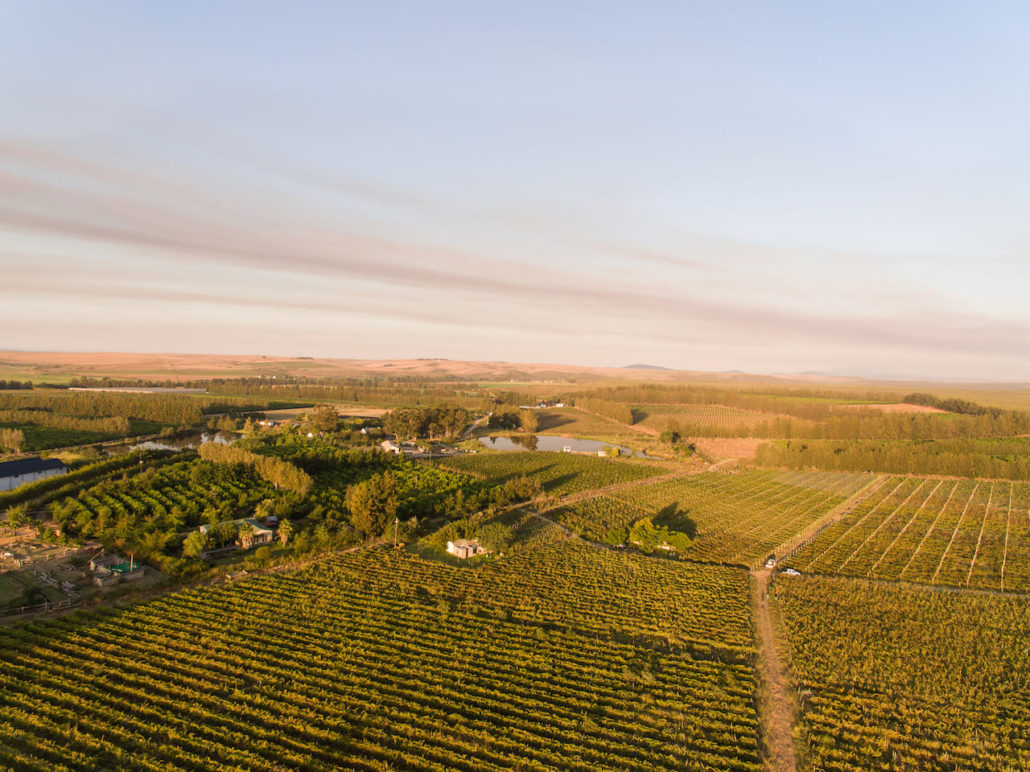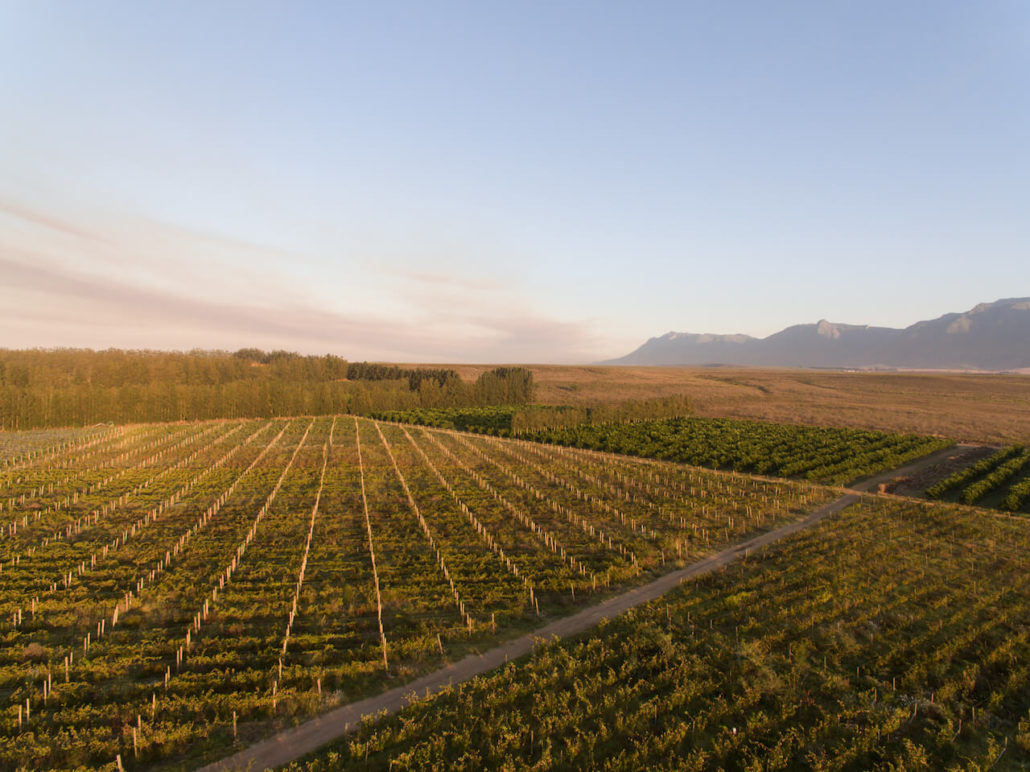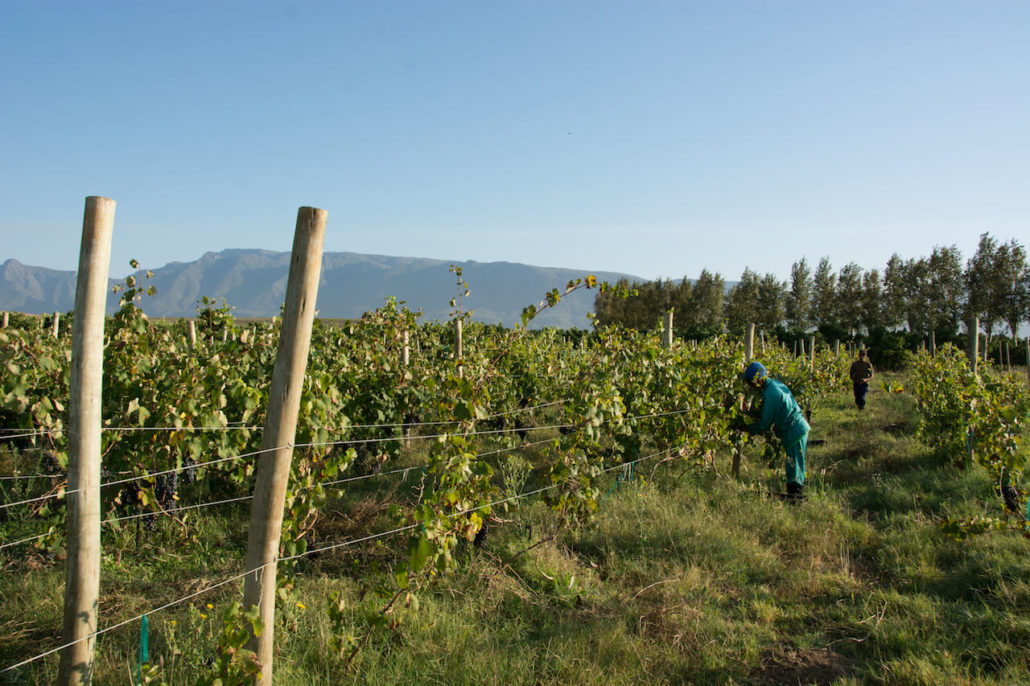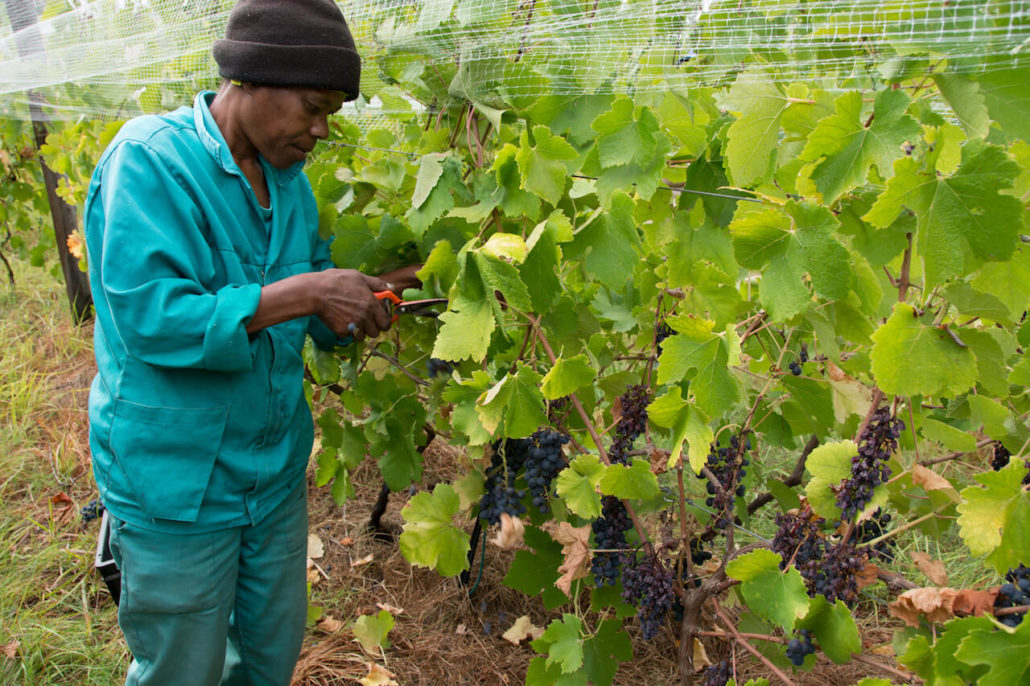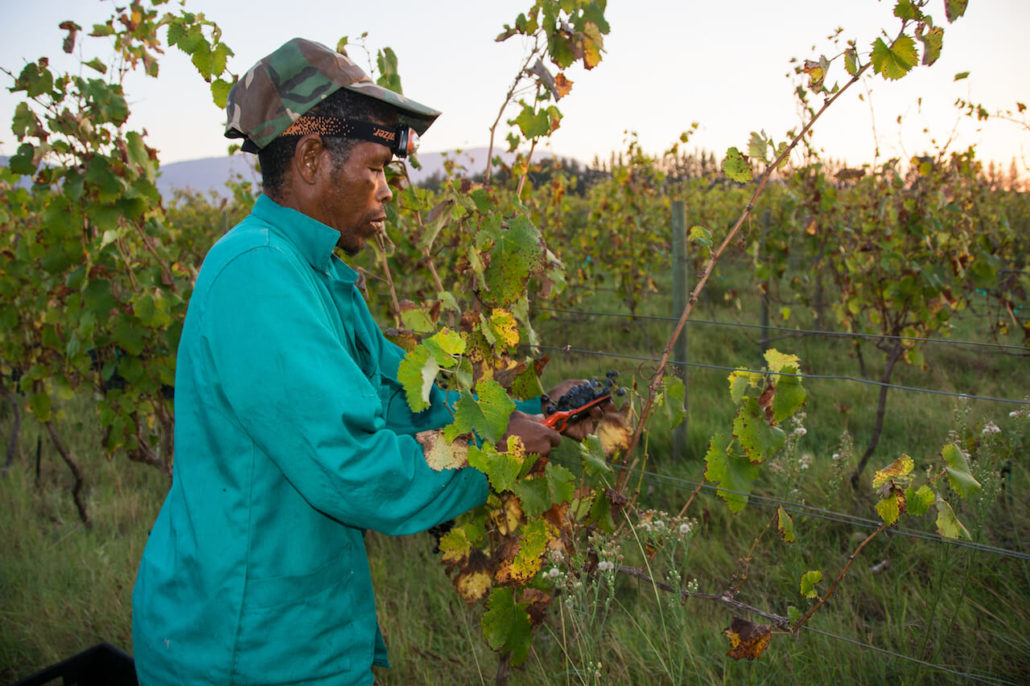The peculiarity of the Greek wine culture on Santorini
Santorini – the Greek dream of blue and white – the island, whose white houses shine with the sun and the blue domes with the sea. There are innumerable reasons why the island is so hotly sought after, the unique wine is one of these reasons.
The volcanic soil is responsible for the unique character of the wines. Moreover, the lack of clay in the soil gives the vines a natural immunity against phylloxera. However, the growing conditions in Santorini are extremely difficult due to the lack of rain.
The history of traditional wine culture
Santorini’s vineyards date back 3,500 years. The volcanic eruption in the 17th century caused every trace of human life and vegetation on the island to die out for about three centuries, leaving behind a mixture of volcanic ash, pumice and solidified lava and sand that together form the soil of Santorini, known as “Aspa”. The soil has little or no organic matter, but is rich in essential minerals other than potassium, producing wines with a naturally low pH and high acidity.
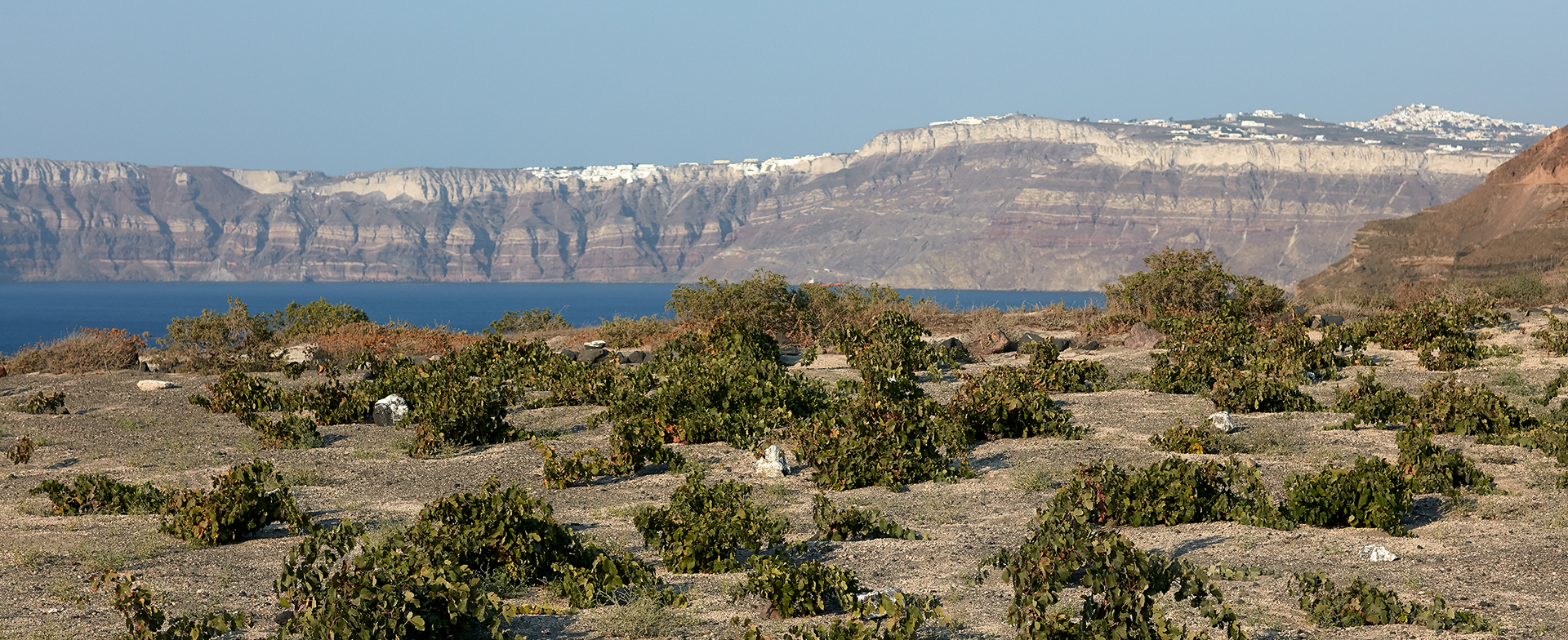
Vineyard in Santorini
Unique technique
In order to protect the plants from strong winds and to limit their water requirements, the Santorini winegrowers adapted and refined a primitive pruning technique, the “ambelia” or “kouloura”. The vines are woven in continuous circles to form a basket that protects them from sand and strong summer sun. A highly complex process, which has been carried out at least four to five times in recent centuries, making part of the original rootstock hundreds of years old.
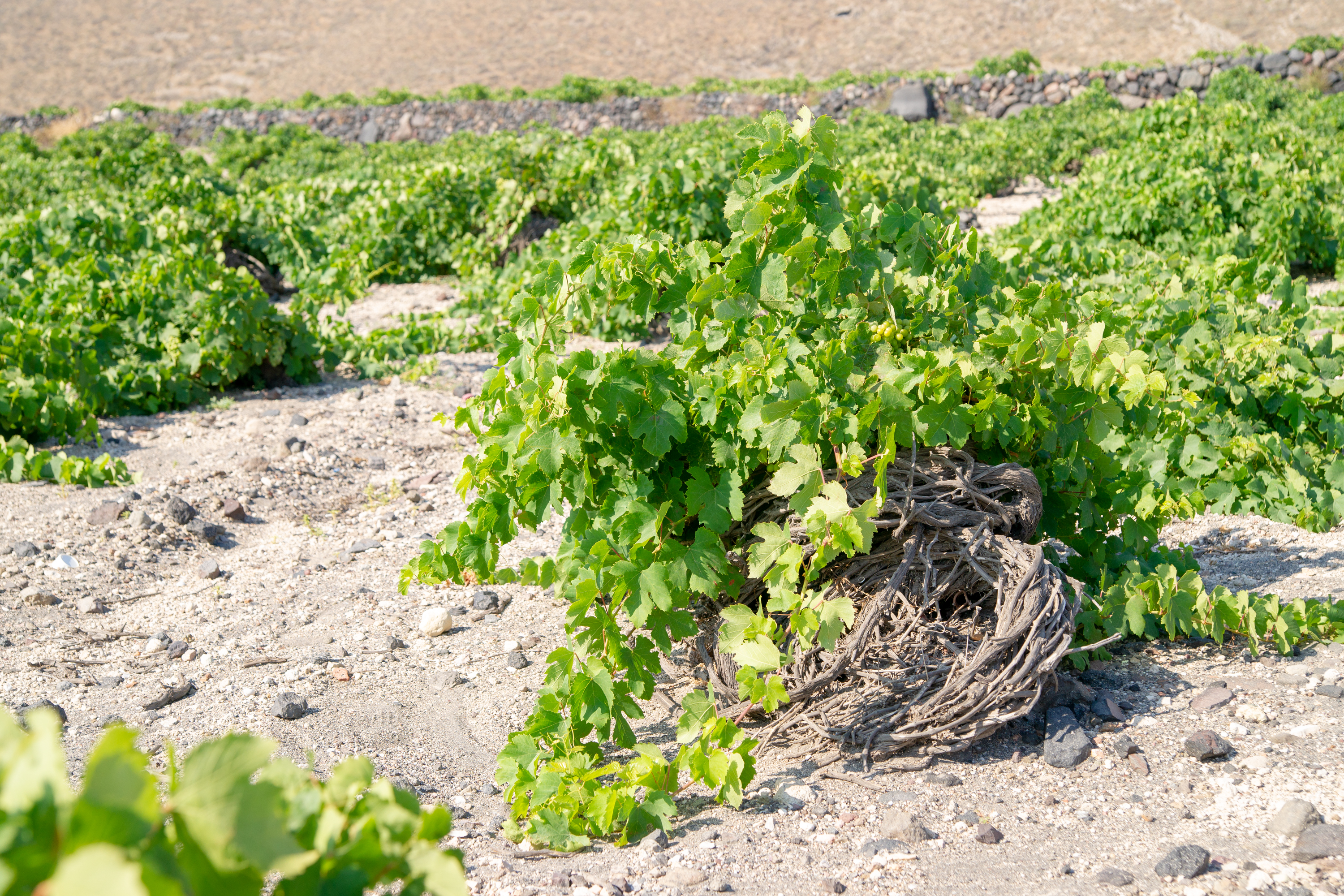
Ambelia-Technique
Kantos – Wine Titans of the Greek Wine Scene
The Swiss wine scene is also becoming more and more fond of Greek wines, thanks to the constant striving for quality of today’s generation of winemakers.
Star oenologists such as Yiannis Paraskevopoulos of Gaia Wines and Vangelis Gerovassiliou of Domaine Gerovassiliou inspire the world with their complex wines. They grow both local and large international grape varieties. Combined with the most modern processing methods, this ensures the creation of quality wines with that certain something. But also for the fact that Greek wines are rightly to be found again on the wine lists of top restaurants all over the world.
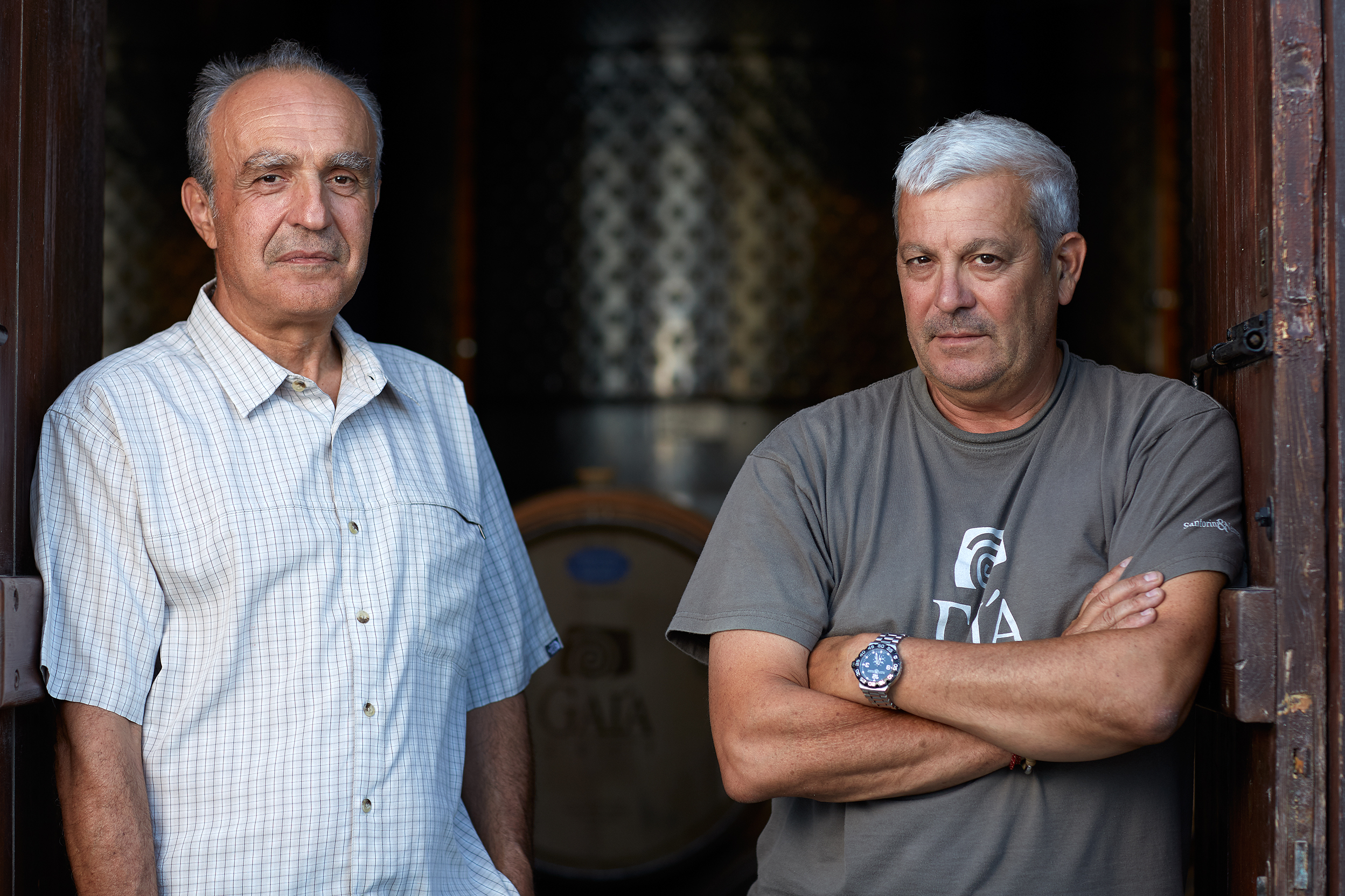
Gaia owner – Leon Karatsalo and Yiannis Paraskevopoulos
The assortment includes Greek red wines, white wines, rosé wines, sweet wines, sparkling wines, beer, olives and olive oil.
- Import of Greek wines
- 10 Greek wine producers (exclusive distribution Switzerland)
- Over 50 wine labels
It is the highest goal to offer Greek wines, which convince by their independence and high standing quality as well as by an excellent price-performance ratio.
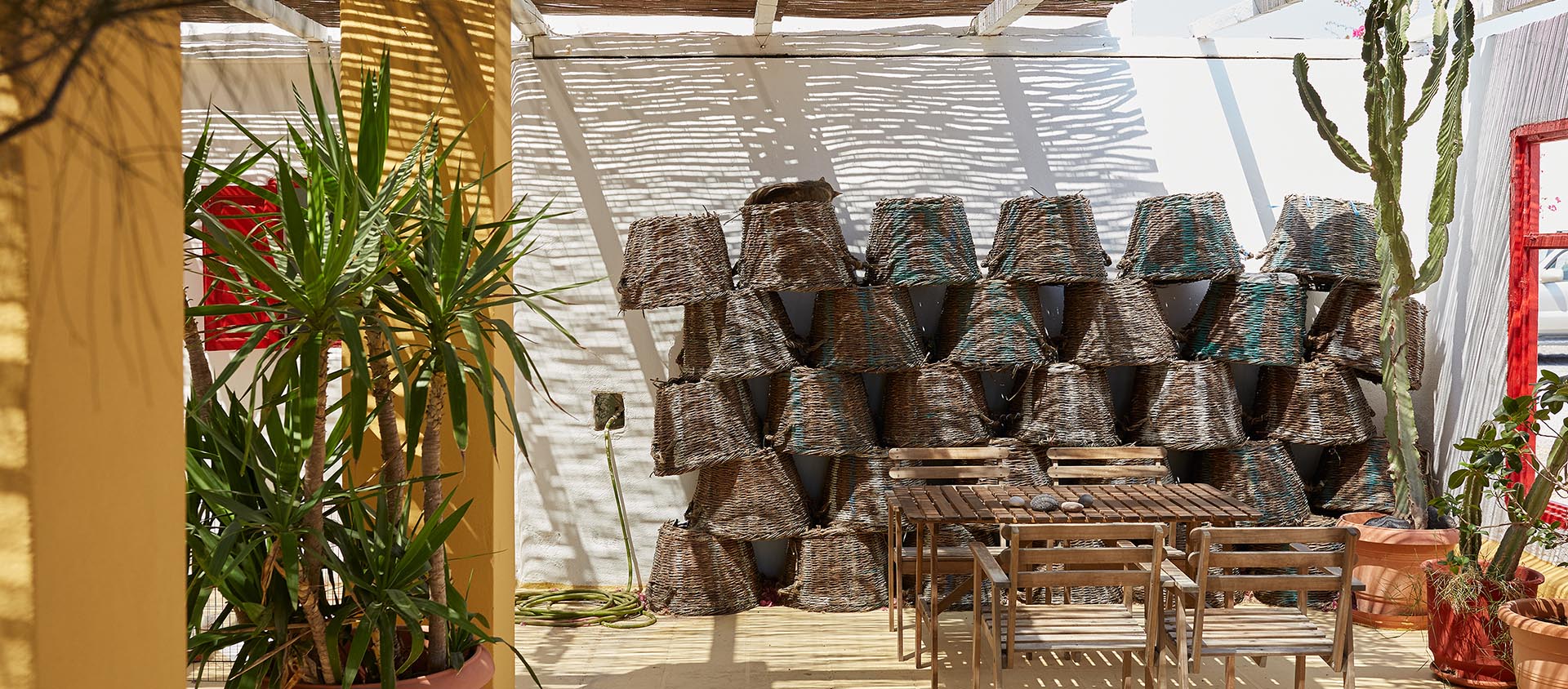
Gaia vineyard
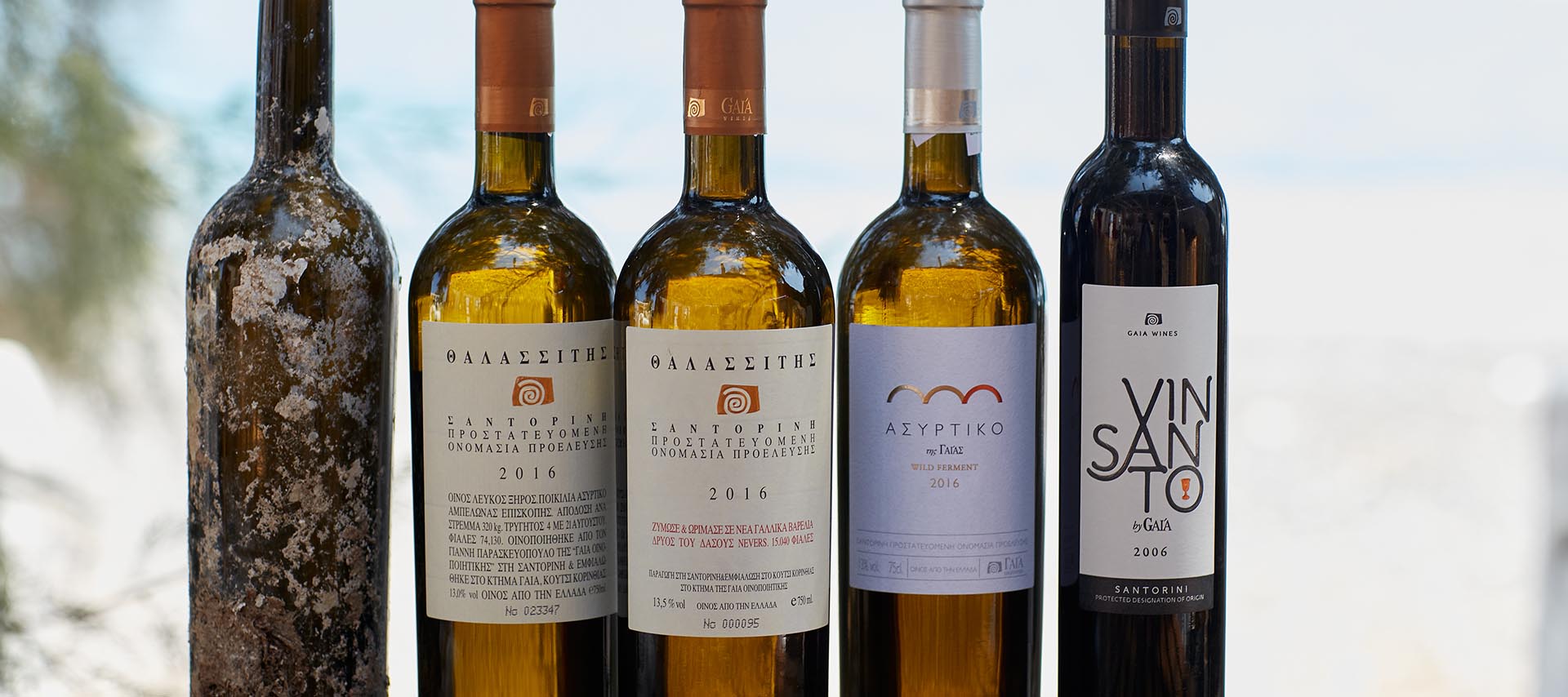
Gaia wines
The modern winery Gaia is one of the best in Greece and uses the autochthonous grape variety Assyrtiko & Agiorgitiko.
Founded in 1994, the company currently produces around 350,000 bottles a year and has received a total of 150 international awards.
Gaia’s objectives were and are to expand and exploit the quality potential of the autochthonous grape varieties of the Greek wine-growing region and to establish them on the international markets. In all these years Gaia has tested the potential of Agiorgitiko from Nemea and Santorini. The company has thus created a series of wines that have won numerous international awards and won both Greek and international consumers.
Our basic option was to install our wineries in the two most important wine- growing regions of Greece, Santorini and Nemea, and to produce competitive wines of high quality standards.”
Yiannis Paraskevopoulos

